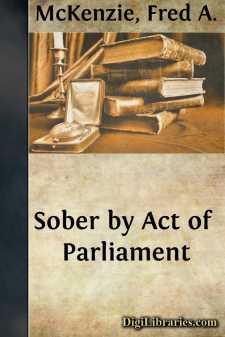Categories
- Antiques & Collectibles 13
- Architecture 36
- Art 48
- Bibles 22
- Biography & Autobiography 816
- Body, Mind & Spirit 145
- Business & Economics 28
- Children's Books 17
- Children's Fiction 14
- Computers 4
- Cooking 94
- Crafts & Hobbies 4
- Drama 346
- Education 58
- Family & Relationships 59
- Fiction 11834
- Foreign Language Study 3
- Games 19
- Gardening 17
- Health & Fitness 34
- History 1378
- House & Home 1
- Humor 147
- Juvenile Fiction 1873
- Juvenile Nonfiction 202
- Language Arts & Disciplines 89
- Law 16
- Literary Collections 686
- Literary Criticism 179
- Mathematics 13
- Medical 41
- Music 40
- Nature 179
- Non-Classifiable 1768
- Performing Arts 7
- Periodicals 1453
- Philosophy 66
- Photography 2
- Poetry 897
- Political Science 203
- Psychology 45
- Reference 154
- Religion 516
- Science 126
- Self-Help 85
- Social Science 82
- Sports & Recreation 34
- Study Aids 3
- Technology & Engineering 59
- Transportation 23
- Travel 463
- True Crime 29
Our website is made possible by displaying online advertisements to our visitors.
Please consider supporting us by disabling your ad blocker.
Sober by Act of Parliament
by: Fred A. McKenzie
Categories:
Description:
Excerpt
CHAPTER I.
THE STATE AS SALOON KEEPER.
During the last few months South Carolina has been the scene of a remarkable experiment in liquor legislation, which has attracted considerable attention from social reformers everywhere. Though professedly based on the Gothenburg system, the Dispensaries Act differs from its prototype in many important respects. As in Sweden, the element of individual profit is eliminated, and the control of the trade is taken out of the hands of private persons; but in place of the drink shops being conducted by the municipalities, they are placed under the direct supervision of the State Government. The saloon has been abolished, and its place taken by dispensaries, where liquor can only be obtained in bottles for consumption off the premises. All public inducements to tippling have been removed at a sweep; and while it is possible for any sober adult to obtain what liquor he wishes, no one is pecuniarily interested in forcing intoxicants on him. The Act was in operation for too short a time to allow anything definite to be said as to its success or failure. It received the fiercest opposition from an influential body of politicians, and from the more lawless section of the community; and the dispossessed saloon keepers, with all the following they could command, naturally did their best to cause it to fail.
In the election of 1892 the prohibition party showed great activity, and succeeded in obtaining a majority at the polls. The question of the control of the liquor traffic occupied a foremost place at the meeting of the new Legislature. Many members were in favour of out-and-out prohibition, and a Bill was introduced to make the manufacture or sale of drink illegal. But, after considerable debate on the subject, a new measure was hastily brought before the Senate, at the instigation of the Governor, the Hon. Benjamin R. Tillman, as a compromise between the views of the extreme prohibitionists and those who held that, in the present condition of public opinion, prohibition would be largely inoperative, and consequently injurious to the temperance cause. The measure was rushed through the Legislature with little or no debate, and at once received the sanction of the Governor.
Governor Tillman is undoubtedly a remarkable man, of bold initiative and great force of character; and it is impossible to understand the situation in South Carolina without knowing something about him. Within the last decade he has risen from obscurity to the supreme power in the State, and to-day he is âbossâ of South Carolina. He first came to the front in 1885, by his bitter denunciations of the local Democratic rulers. He is himself a Democrat, but this did not prevent him from bringing the most serious charges against the members of the aristocratic ring that held the reins of Government. He charged them with being the enemies of the poor and oppressors of the people, whose one aim was to conduct public affairs so as to benefit themselves. At first the high-class politicians treated him with a half-amused, half-contemptuous scorn, sneered at what they were pleased to call his ignorant talk, and held his language up to ridicule. And in truth, if reports may be believed, his vigour of speech gave his enemies abundant cause to blaspheme. He was not particular in his choice of phrases, and he did not hesitate to pile up the most picturesque and sanguinary expressions in describing his opponents.
But the people rallied around him. âI am rough and uncouth, but before Almighty God I am honest,â he said to them; and they believed him. The poorer country folks were his first followers, then the Farmersâ Alliance came to his support, and before the old politicians had ceased to wonder at the audacity of the young man, they began to learn that their days of power were over....


